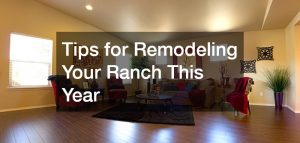You’ve found your dream home. Now it’s time to learn about the different financing options available to make your homeownership dreams come true. Deciding whether to get a mortgage or a loan can be tough. After all, both options could help you achieve your homeownership dreams. So, how do you choos
Mortgages vs. Loans: What’s the Difference?
A mortgage is a type of loan that helps you finance the purchase of a home. The borrowed funds can come from a bank, credit union, or other financial institution. Mortgages typically have longer repayment terms than other types of loans—15 to 30 years is common—and they usually require collateral in the form of the home itself. This means that if you default on your mortgage payments, your lender could foreclose on your home.
On the other hand, personal loans are unsecured loans that can be used for just about anything. Unlike mortgages, personal loans don’t require collateral. This means that there’s no risk of losing your home if you can’t make your payments. However, it also means that personal loan interest rates tend to be higher than mortgage rates. Personal loan terms also tend to be shorter than mortgage terms—five years or less is common—which means you’ll likely have to pay off your loan faster.
So, which one is right for you? It depends on a few factors.
Consider Your Homebuying Timeline
Are you ready to buy a home now? Or are you still saving up for a down payment? If you’re not quite ready to buy yet, taking out a personal loan can give you time to save up without paying interest on your mortgage until you’re ready to close on a home.
Search houses for sale to check out your available options in the market. By considering the features you are interested in, you can get an estimate of how much you need to prepare and which financing options will be best for you. When you do research on your home, it can also help to assess how your current financial situation will fit with your dream home.
Think About Your Down Payment Options
Do you have the cash for a down payment? If so, getting a mortgage could make more sense than taking out a personal loan (although you may want to compare mortgage rates before making any decisions). On the other hand, if you don’t have the cash for a down payment and prefer not to wait to save up, taking out a personal loan and using those funds as your down payment could help you buy sooner rather than later. Just keep in mind that doing this could mean paying private mortgage insurance (PMI), which would increase your monthly payments.
Weigh the Pros and Cons of Each Option Carefully

Mortgages offer some advantages over personal loans—lower interest rates and longer repayment terms, for starters—but they also come with some disadvantages (like the risk of foreclosure). Personal loans offer convenience and flexibility but typically come with higher interest rates than mortgages. Ultimately, the best way to decide between a mortgage and a personal loan is by carefully considering each option’s pros and cons before making a decision.
Taking out either a mortgage or personal loan can help make your homeownership dreams come true. But which one is right for you? It depends on factors like your timeline for buying and whether you have cash for a down payment. Weighing the pros and cons of each option carefully can also help you make an informed decision about which route to take.
There are many financing options available to homebuyers, and the best option for you will depend on your individual circumstances. Here are a few of the most common financing options available:
Types of Loans
Conventional Loans
Conventional loans are typically available through banks and credit unions. They are the most common loan used to finance a home purchase. These loans typically require a down payment of 20% of the purchase price. However, some lenders may offer programs with lower down payment requirements.
FHA Loans
FHA loans are insured by the Federal Housing Administration and are available through many lenders. These loans are often a good option for first-time homebuyers as they allow for lower down payments.
VA Loans
VA loans are available to eligible veterans, active-duty service members, and their spouses. These loans are funded by the US Department of Veterans Affairs and can often be obtained with no down payment.
USDA Loans
USDA loans are available to eligible homebuyers in rural areas. These loans are backed by the US Department of Agriculture and can often be obtained with no down payment.
Types of Mortgages
Fixed-rate Mortgage
A fixed-rate mortgage is a loan with an interest rate that does not change. This type of loan is typically available for 15 or 30 years.
Adjustable-rate Mortgage (ARM)
An adjustable-rate mortgage is a loan that has an interest rate that can change over time. These loans normally start with a lower interest rate instead of a fixed-rate mortgage, but the rate can increase or decrease over time, depending on market conditions.
Now that you know more about the different types of financing options available, you can start shopping for your dream home with confidence. Just make sure to research before you buy and sign any papers for a stress-free purchase.





